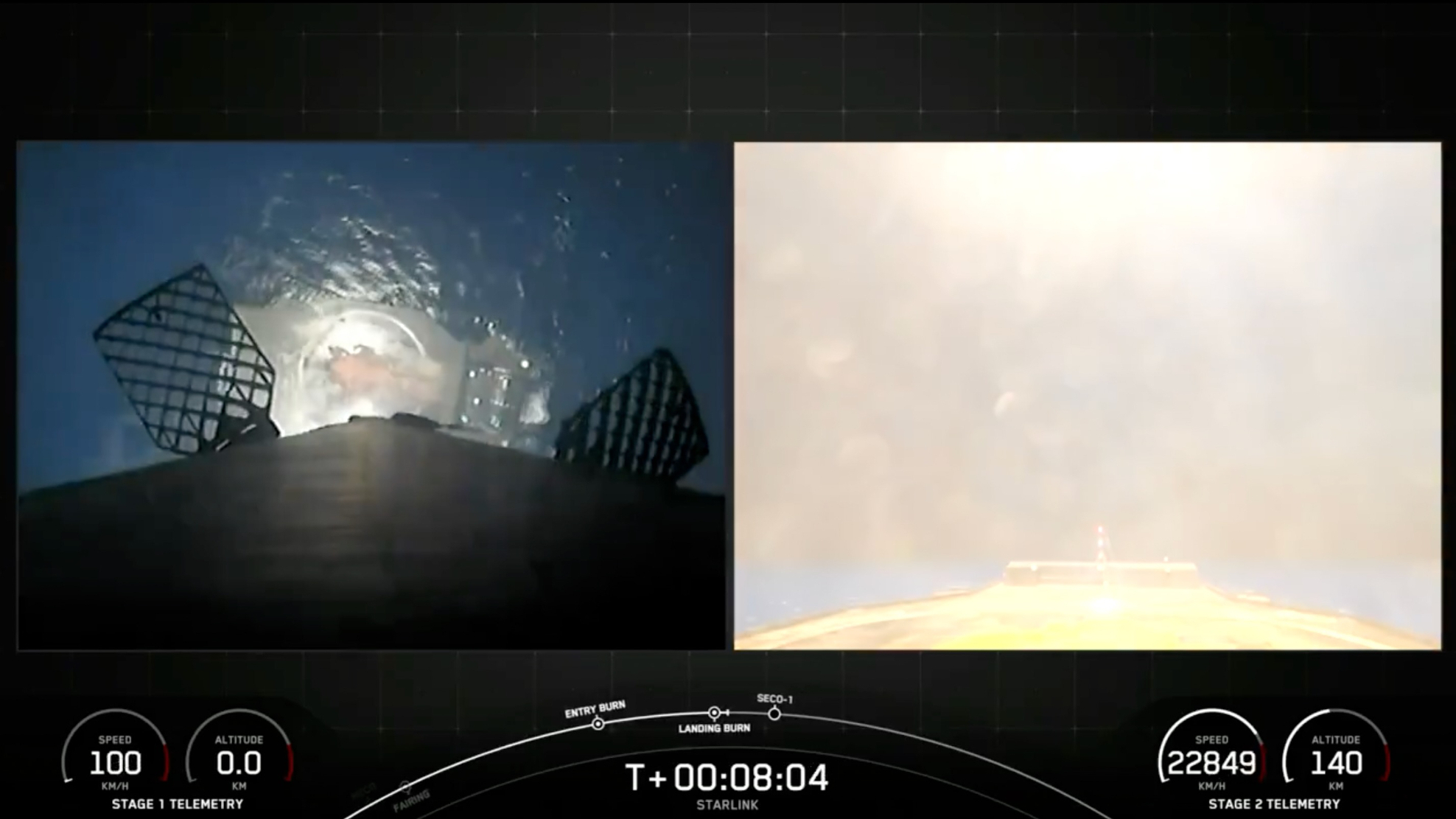SpaceX just notched a big spaceflight milestone.
A Falcon 9 rocket carrying 24 of the company's Starlink satellites lifted off from NASA's Kennedy Space Center in Florida on Tuesday (Nov. 26) at 11:41 p.m. EST (0441 GMT on Wednesday, Nov. 27).
The satellites were deployed into low Earth orbit about 65 minutes later as planned. It was the 400th successful mission for the workhorse rocket, which debuted in 2010, SpaceX announced via X on Wednesday (Nov. 27).

The Falcon 9's first stage came back to Earth safely, touching down on the droneship "A Shortfall of Gravitas" in the Atlantic Ocean about eight minutes after liftoff.
It was the 375th landing for a Falcon first stage overall, SpaceX said via X, and the 15th for this particular booster, according to a company mission description. Eleven of its 15 flights to date have been Starlink missions.

SpaceX has now launched 117 Falcon 9 missions so far in 2024, and 81 of them have been devoted to building out the Starlink network. Five of those Starlink flights have occurred in the past eight days.
The Starlink megaconstellation — the biggest ever assembled — currently consists of nearly 6,700 active spacecraft, according to satellite tracker and astrophysicist Jonathan McDowell.
Get the Space.com Newsletter
Breaking space news, the latest updates on rocket launches, skywatching events and more!
Editor's note: This story was updated at 1 a.m. ET on Nov. 27 with news of successful launch, rocket landing and satellite deployment, then again at 11:45 a.m. ET with the information that this was the 400th successful Falcon 9 mission.
Join our Space Forums to keep talking space on the latest missions, night sky and more! And if you have a news tip, correction or comment, let us know at: community@space.com.

Michael Wall is a Senior Space Writer with Space.com and joined the team in 2010. He primarily covers exoplanets, spaceflight and military space, but has been known to dabble in the space art beat. His book about the search for alien life, "Out There," was published on Nov. 13, 2018. Before becoming a science writer, Michael worked as a herpetologist and wildlife biologist. He has a Ph.D. in evolutionary biology from the University of Sydney, Australia, a bachelor's degree from the University of Arizona, and a graduate certificate in science writing from the University of California, Santa Cruz. To find out what his latest project is, you can follow Michael on Twitter.









